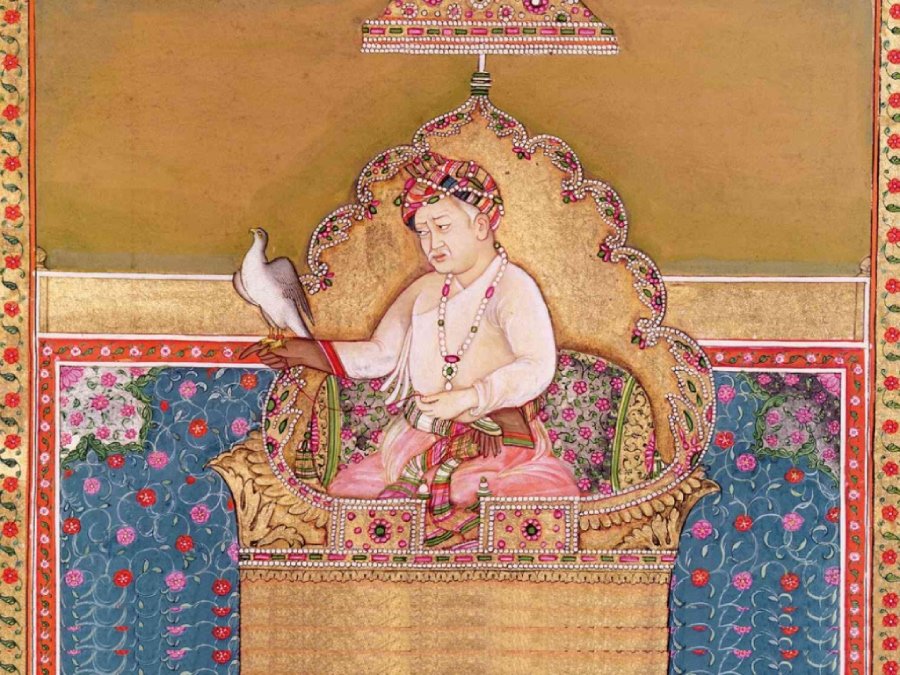Akbar, also known as Akbar the Great, was a renowned emperor who ruled the Mughal Empire in India during the 16th century. He is considered one of the most influential and powerful rulers in Indian history, known for his administrative reforms, military conquests, and promotion of religious tolerance.
Early Life and Ascension to the Throne
Akbar was born on October 15, 1542, in Umarkot, Sindh (now in Pakistan), to Emperor Humayun and Hamida Banu Begum. Also known as: Abū-ul-Fatḥ Jalāl-ud-Dīn Muḥammad Akbar. After his father’s death, Akbar ascended to the throne at the tender age of 13. However, his reign truly began when he turned 18 and took full control of the empire.
Administrative Reforms
Akbar was a visionary leader who implemented various administrative reforms that greatly influenced the governance of the Mughal Empire. He established a centralized system of administration, dividing the empire into provinces called “subahs” and appointing governors to oversee them. Akbar also introduced a system of revenue collection and land reforms, which led to increased agricultural productivity.
One of Akbar’s most significant contributions was the establishment of the Mansabdari system. Under this system, all government officials, including military commanders, were given ranks or “mansabs” based on their skills and qualifications. This merit-based system ensured that individuals were appointed to positions based on their abilities rather than their birth or social status.
Military Conquests
Akbar was a skilled military strategist and expanded the Mughal Empire through numerous conquests. He successfully annexed several territories, including Gujarat, Bengal, and parts of Rajasthan and Punjab. His military campaigns were not only aimed at expanding the empire but also at establishing peace and stability in the region.
Akbar’s most notable military victory came in 1576 when he defeated the Rajput confederacy led by Rana Pratap Singh of Mewar at the Battle of Haldighati. Despite the victory, Akbar showed great respect for the bravery and valor of his opponents and sought to integrate the Rajputs into his administration.
Religious Tolerance
One of Akbar’s most remarkable qualities was his commitment to religious tolerance and harmony. He recognized the diversity of his empire, which included Hindus, Muslims, Christians, and Sikhs, among others. Akbar promoted a policy of religious tolerance and abolished the discriminatory jizya tax imposed on non-Muslims.
He also established the Din-i-Ilahi, a syncretic religion that aimed to blend various beliefs and practices from different religions. However, this new religion did not gain widespread acceptance and eventually faded away after Akbar’s death.
Legacy
Akbar’s reign marked a golden age in the history of the Mughal Empire. His administrative reforms, military conquests, and promotion of religious tolerance laid the foundation for a prosperous and culturally rich empire. Akbar’s legacy continues to inspire admiration and awe, and his contributions are still celebrated today.
Akbar the Great was not only a powerful ruler but also a patron of art, architecture, and literature. The Mughal architecture reached its zenith during his reign, with the construction of magnificent structures such as the Agra Fort and the Fatehpur Sikri complex.
Beliefs of Akbar the Great:
- Religious Syncretism: Akbar was known for his interest in religious diversity and sought to integrate various faiths into a harmonious whole. His creation of Din-i Ilahi, although not widely adopted, exemplified his attempt to blend elements from different religions.
- Spiritual Inclinations: While not adhering strictly to one religion, Akbar displayed a deep spiritual inclination. He engaged in discussions with religious scholars and explored various philosophical ideas.
- Pragmatism: Akbar’s governance reflected a pragmatic approach. He was willing to adopt policies that ensured the stability and prosperity of his empire, including the promotion of religious tolerance and administrative reforms.
- Intellectual Curiosity: Akbar was known for his intellectual curiosity and multilingualism. He sponsored translations of various works and encouraged the exchange of ideas in his court, contributing to a flourishing intellectual environment.
In Conclusion
Akbar the Great was a visionary leader who left an indelible mark on the history of India. His administrative reforms, military conquests, and promotion of religious tolerance continue to be remembered and admired. His reign exemplified the ideals of a just and inclusive society, making him an iconic figure in Indian history.
Learn more about Akbar the Great at wikipedia.







